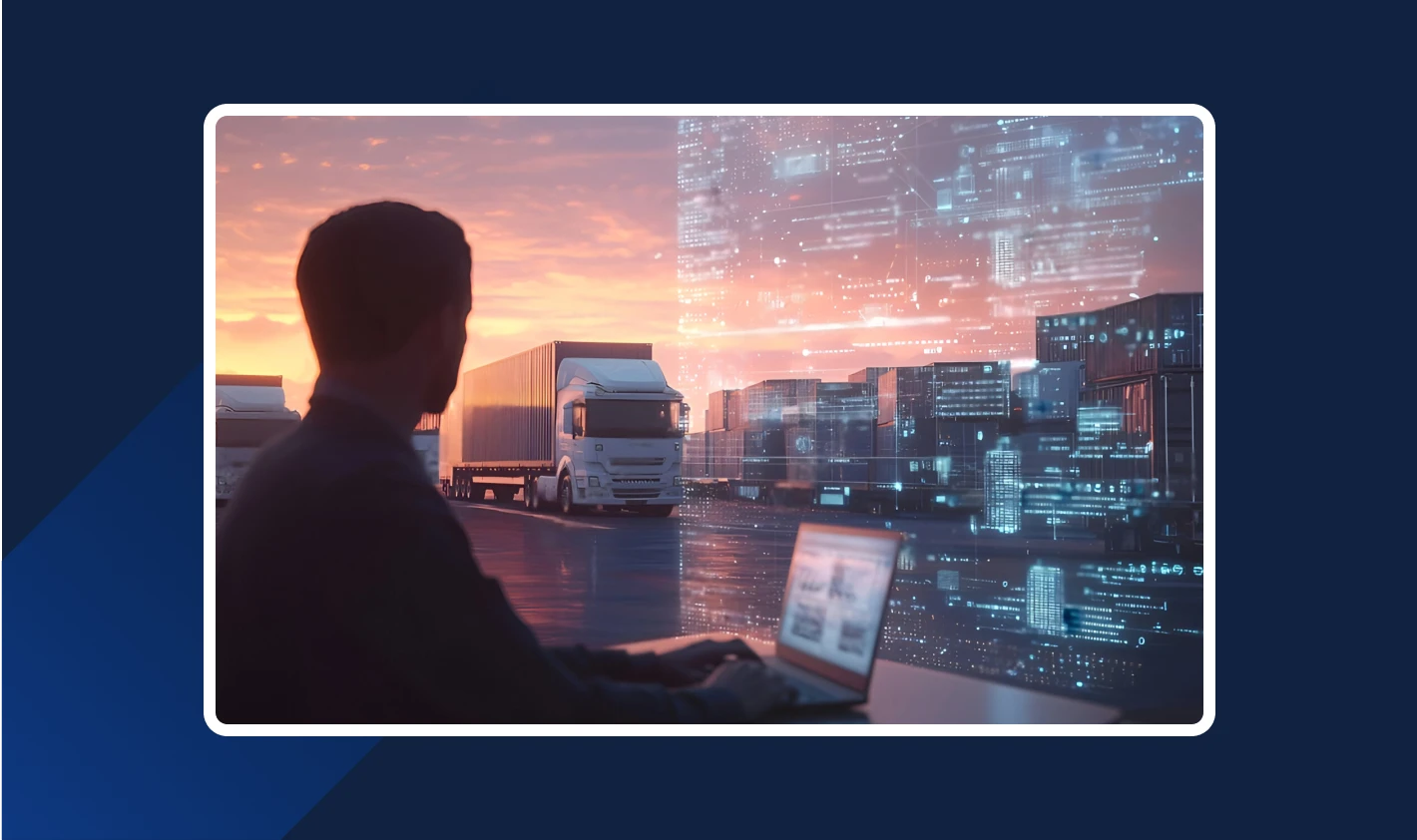
The invisible drain on freight dollars
The U.S. trucking industry moves nearly everything we consume, from groceries to electronics. It’s massive—worth close to $987 billion to $1.01 trillion in freight revenues in 2023. But behind the scenes, a quieter problem eats away at profits: payment leakage.
Freight bills aren’t always accurate. In fact, between 15% and 25% of invoices contain errors, ranging from misapplied fuel surcharges to duplicate billing. Some studies suggest as many as 80% of carrier invoices may have discrepancies. That’s not just a rounding error—it’s a structural issue costing the industry billions each year.
And here’s the thing: every dollar lost to bad invoicing isn’t just about overpayment. It slows down cash flow, creates disputes, and damages the already fragile trust between shippers and carriers.
Why payment integrity now matters more than ever
Margins in trucking are thin. Fuel costs, driver wages, insurance premiums, and equipment expenses keep climbing. During 2023’s freight recession, industry costs rose by over 6%, leaving many fleets strapped for cash. When the pie is shrinking, companies can’t afford to bleed money through billing mistakes.
Consider detention and layover fees. Detention alone cost the industry $3.6 billion in direct costs and another $11.5 billion in lost productivity in 2023. Yet, less than half of those invoices are ever paid. Or accessorial charges, which can make up nearly half of a carrier’s annual revenue—often added after the fact, unpredictable, and ripe for disputes.
It’s not just a nuisance. It’s a battleground. Whoever manages to control these leaks—whether shipper, carrier, or broker—gains a clear financial edge.
Traditional freight audits: patching holes with buckets
Freight audits aren’t new. Companies have long used internal staff or outsourced providers to check invoices. And they do save money—typically 2% to 8% of freight spend, averaging about 5%. For a shipper spending $10 million annually, that’s $500,000 back in the bank.
But here’s the catch. Traditional systems are slow, reactive, and incomplete. They rely on rules or manual checks after the invoice is submitted. That means disputes happen late, payments get delayed, and relationships sour.
Problems they often miss:
- Invoices submitted multiple times across departments (leading to duplicate payments, often 0.05–0.1% of total spend—millions for big shippers).
- Fuel surcharges inflated beyond contract terms.
- Reclassification of freight by carriers that changes the final bill.
- Administrative errors—wrong addresses, missed discounts, or mismatched shipment data.
In short: the current tools were built for a simpler freight environment. They can’t keep up with today’s complexity.
GenAI enters the audit room
This is where Generative AI (GenAI) changes the conversation. Unlike rule-based systems, GenAI doesn’t just check invoices against static templates. It learns patterns. It understands context. It adapts.
How?
- Pattern recognition: It can review millions of invoices and spot recurring anomalies—like one carrier consistently adding “extra stop” charges out of line with industry averages.
- Contextual validation: Instead of just checking if numbers add up, GenAI asks whether the charges make sense. Was the shipment weight consistent with the billed amount? Did the route justify that mileage cost?
- Fraud detection: From Medicaid transport scams to double brokering, fraudulent billing has cost operators millions. GenAI can cross-check against historical data to flag suspicious claims.
- Predictive insights: By analyzing historical disputes, it can forecast which invoices are most likely to be challenged and prevent errors before money leaves the account.
Case studies already prove the point. Intelligent Audit uses deep learning to reach 99% invoice audit accuracy, saving a national food retailer $5 million by curbing unnecessary air freight spend. OpenEnvoy cut audit time from days to hours, catching duplicate charges with near-perfect precision.
What’s at stake for shippers, carriers, and brokers
The benefits of GenAI freight auditing ripple across the value chain:
- Shippers protect working capital. By reducing overpayments and disputes, they preserve cash for other priorities. Accurate payments also improve forecasting, reducing reliance on expensive short-term financing.
- Carriers get paid faster. With fewer disputes clogging up the process, payments flow quicker, easing the cash crunch smaller fleets often face. That builds trust with shippers and encourages repeat business.
- Brokers and 3PLs gain differentiation. Offering accurate, transparent billing backed by GenAI becomes a value proposition in itself. In an industry where relationships matter, financial transparency is a strong selling point.
And beyond individual players, accurate payments reduce administrative churn. Accounts teams spend less time chasing down disputes and more time on strategic analysis.
But let’s be clear: adoption isn’t frictionless
It’s tempting to paint GenAI as a silver bullet. But implementing it requires more than plugging in a model.
Data quality remains the biggest hurdle. Freight invoices flow through ERP systems, TMS platforms, emails, spreadsheets, even PDFs faxed from carriers. Consolidating all that mess into a clean data set is the hard, unglamorous work that makes AI possible.
Integration with legacy systems is another roadblock. Many shippers still rely on outdated back-office systems that resist automation. GenAI works best when embedded into the workflow, not bolted on as an afterthought.
And there’s the trust issue. Finance teams don’t want a black box deciding payments. They need explainability—why was an invoice flagged, and what evidence supports the decision? GenAI tools must show their reasoning, not just the outcome.
Payment integrity as a boardroom concern
It’s easy to think of freight auditing as a back-office chore. But the numbers say otherwise. If 15–25% of invoices contain errors, and freight spend is nearing $1 trillion, even conservative estimates put the potential leakage at tens of billions annually.
That’s not just a finance department problem—it’s a strategic issue for leadership. Every dollar wasted on billing errors is a dollar not invested in fleet upgrades, sustainability initiatives, or driver retention.
This is why payment integrity is shaping up as the next battleground. In a market fighting for efficiency, cash flow, and trust, the companies that get it right will move ahead faster.
At Amazatic, we see GenAI not as an experiment but as a necessity. Payment integrity isn’t optional anymore. It’s a core driver of resilience in U.S. trucking.
We believe GenAI-powered freight auditing is more than cost recovery. It’s a way to restore trust across the supply chain, give CFOs confidence in financial forecasts, and help carriers focus on delivering freight—not disputing invoices.
Trucking is already hard enough. The money lost in billing errors doesn’t have to be part of the struggle.
Payment errors may feel like small cracks in the system. But when you add them up across a trillion-dollar industry, they’re fault lines. GenAI gives the industry the tools to seal those cracks before they widen.
The next competitive edge in trucking isn’t just better rates or faster routes. It’s payment integrity. And GenAI is the freight auditor built for that fight. If you’re ready to rethink freight auditing with GenAI and make payment integrity a strength instead of a risk, Amazatic can help you get there. Visit www.amazatic.com

